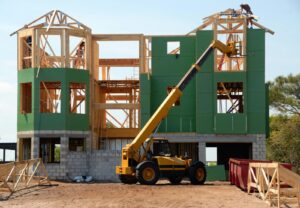Healthcare Real Estate Firms: Shaping the Future of Healthcare Infrastructure
Healthcare real estate firms play a pivotal role in the development, management, and optimization of properties dedicated to healthcare facilities. As the healthcare industry continues to evolve, the demand for specialized real estate solutions tailored to the unique needs of medical providers is on the rise. In this article, we will delve into the intricacies of healthcare real estate firms, exploring their functions, significance, and impact on the healthcare landscape.
Introduction
Healthcare real estate firms specialize in acquiring, developing, leasing, and managing properties specifically designed to accommodate healthcare providers. These properties include hospitals, medical office buildings (MOBs), outpatient clinics, ambulatory surgery centers, and other specialized healthcare facilities.
Evolution and Growth of the Industry
The healthcare real estate sector has experienced significant growth and evolution over the years. Historically, healthcare facilities were predominantly located within hospital campuses or clustered around major medical centers. However, with the advent of value-based care and the emphasis on patient-centered services, there has been a shift towards decentralized care delivery. This shift has led to an increased demand for standalone medical facilities in suburban and urban areas, creating new opportunities for healthcare real estate firms to innovate and expand their portfolios.
Functions and Services
Healthcare real estate firms perform a wide range of functions and services to meet the needs of their clients and tenants. These include:
Property Acquisition and Development:
Identifying strategic locations and acquiring properties suitable for healthcare facilities. Overseeing the development process, from zoning approvals and construction to tenant improvements, to ensure that the facilities meet the specific requirements of healthcare providers and comply with regulatory standards.
Leasing and Tenant Management:
Leasing out properties to healthcare providers, including hospitals, physician groups, and healthcare systems. Managing tenant relationships, negotiating lease agreements, and providing ongoing support to ensure the efficient operation of the facilities.
Asset Management and Optimization:
Maximizing the value of properties through proactive asset management strategies. This includes implementing cost-effective maintenance programs, optimizing space utilization, and exploring opportunities for expansion or redevelopment to enhance the property’s profitability and long-term sustainability.

Financial Analysis and Investment Strategy:
Conducting comprehensive financial analysis to assess the viability of potential investments and develop investment strategies aligned with clients’ objectives. This may involve evaluating market trends, conducting feasibility studies, and forecasting financial performance to mitigate risks and maximize returns.
Importance of Location
Location plays a crucial role in the success of healthcare facilities. Healthcare real estate firms prioritize strategic location selection to ensure accessibility and convenience for patients while also considering factors such as population density, demographic trends, and proximity to other healthcare providers. A prime location not only enhances patient access but also attracts top-tier tenants and contributes to the long-term value of the property.
Impact on Healthcare Delivery
Healthcare real estate firms have a significant impact on healthcare delivery by shaping the physical infrastructure and layout of healthcare facilities. Well-designed and strategically located properties contribute to improved patient outcomes, enhanced patient experience, and increased efficiency in care delivery. By providing modern, state-of-the-art facilities, these firms support healthcare providers in delivering high-quality, patient-centered care that meets the evolving needs of the community.
Challenges and Opportunities
While healthcare real estate firms offer lucrative opportunities for investment and innovation, they also face several challenges inherent to the healthcare industry. These include regulatory complexities, reimbursement uncertainties, evolving healthcare policies, and market volatility. Additionally, the COVID-19 pandemic has brought to light new challenges such as the need for flexible healthcare spaces, telehealth integration, and infection control measures. However, amidst these challenges lie ample opportunities for healthcare real estate firms to adapt, innovate, and thrive. The increasing demand for healthcare services, advancements in medical technology, and shifting consumer preferences present opportunities for growth and diversification.
Case Studies and Success Stories
Real-life examples of successful healthcare real estate projects showcase the transformative impact of these firms on the healthcare landscape. Case studies highlight innovative design concepts, strategic location selection, and successful partnerships that have led to the development of thriving healthcare facilities. By examining these success stories, stakeholders can gain valuable insights into best practices and lessons learned in healthcare real estate development and management.
Future Trends and Innovations
Looking ahead, the future of healthcare real estate is shaped by emerging trends and innovations. Key trends include the rise of telehealth and digital health solutions, which are driving demand for flexible and adaptable healthcare spaces. Other trends include the integration of wellness amenities, sustainable design practices, and the use of advanced technology to enhance patient care and streamline operations. Healthcare real estate firms that embrace these trends and innovations will be well-positioned to lead the way in shaping the future of healthcare infrastructure.
Conclusion
In conclusion, healthcare real estate firms play a vital role in shaping the future of healthcare infrastructure by providing innovative real estate solutions that support the delivery of high-quality, accessible, and patient-centered care. Through strategic property acquisition, development, and management, these firms contribute to improving healthcare access, enhancing patient experience, and driving economic growth. As the healthcare industry continues to evolve, healthcare real estate firms will remain key players in creating sustainable healthcare infrastructure that meets the evolving needs of patients, providers, and communities.

FAQ’s
1. What opportunities does exploring the world of crowdfunded real estate unlock?
Exploring the world of crowdfunded real estate unlocks opportunities for individuals to invest in a diverse range of properties with lower capital requirements, increased accessibility, and potential for higher returns. It also enables investors to diversify their portfolios and participate in real estate markets previously inaccessible to them. read More
2. What are the 5 types of real estate?
he five main types of real estate are residential, commercial, industrial, land, and special purpose properties. Residential real estate includes properties used for living purposes, such as houses, apartments, and condominiums. Commercial real estate refers to properties used for business and retail purposes, such as office buildings, shopping malls, and hotels. Industrial real estate comprises properties used for manufacturing, warehousing, and distribution activities.
3. What are some emerging trends in luxury real estate?
Some emerging trends in luxury real estate include the rise of smart home technology, sustainable and eco-friendly design features, increased demand for privacy and security amenities, the integration of wellness amenities and features, and the emphasis on unique and personalized experiences for homeowners. Read More


